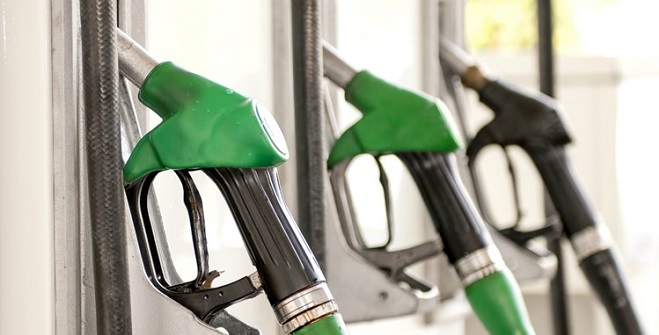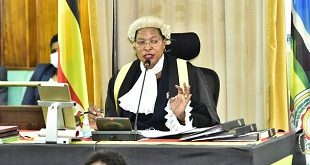
Kampala, Uganda | THE INDEPENDENT | Government agencies and petroleum marketing companies are divided on whether or not to resume the countrywide crackdown on fuel stations that violate standards. These activities were suspended when COVID-19 broke out more than two years ago and movement became more restricted.
The crackdown involved checking the quality of products at pump fuel stations, and the compliance of fuel pumps to the measurement standards as well as the storage tanks among others. By the time of the suspension, the level of standard violations had dropped from 30 percent 20 years back to about one percent.
Some of the companies that were penalized by suspension or closure are still in court challenging the joint action of the Uganda National Bureau of Standards and the Ministry of Energy. It is feared that since the suspension of the quarterly inspections more than two years ago, the consumers are at risk of exposure to substandard products.
According to the Commissioner of Petroleum Supplies Department, Rev Frank Tukwasibwe, there is a need to study the industry currently, to determine the relevance of the operations before they resume. Tukwasibwe says some marketers are opposed to the operations while others want them back to protect the industry.
He however supports the suspension then as necessary because there was very little activity even in the petroleum industry.
The response came after Solomon Muyita, the Principle Public Relations Officer at the Ministry of Energy and Mineral Development reported sustained complaints by consumers over the quality of fuel at various stations.
Muyita wondered if the name-and-shame practice should be resumed as a way of keeping the marketers in check because ongoing measures seem not to help.
Rev Tukwasibwe says that some of the offenders actually repeat the offenses for which they have been reprimanded and it is at this time, especially when one breaks the seals and resumes operations, that the authorities seek legal action.
He says the mode of operation and the published reports were already being questioned by the public on their effectiveness, adding that it is even very expensive to publish the list.
On his part, Peter Kitimbo, a principal analyst at UNBS says there are several steps they go through before taking more drastic action on an offender, including rectifying a standard fault discovered if possible. However, where the violation is repeated, the options get more drastic from the companies, some of which are now in court.
He stresses that the countrywide operations and the publication of offenders will resume for the sake of the industry and the public.
However, some of the private sector players in the business are not satisfied with the operations of the government agencies, with some citing either discrimination or corruption. Some expressed a lack of technical knowledge of their operations, which ends up affecting the quality of their products and services.
One of the commonest complaints by motorists is under-delivery at the fuel pump and claims that pump attendants give fuel less than what has been paid for. One Sylvia who says she works at Chelo Petroleum, says sometimes the pump, which has just been calibrated and certified can deliver ‘air’ and gas at the same time, which means the customer gets less than what’s paid for.
But she also queries how it was possible at one time, when a truck delivering fuel at her station had the products checked at the border, only to be told later at the station that they imported adulterated fuel. She wonders whether this was connivance or misunderstanding between the UNBS personnel.
One station manager explained that those who cheat at the pump intentionally may not ‘return’ the pump meter to zero reading as is supposed to do. So the meter starts counting from where the last service count ended, meaning the current customer will take less than what was paid for.
However, others explained that some fuel station attendants take long to stop serving even when the product left in the station tank has gone below the level where the pipe stops. This way, they will deliver fuel and air at the same time until the tank is replenished. They were advised to always mark the level at which the pump should be stopped and wait for replenishment.
On those who cheat the customers intentionally, Rev Tukwasibwe said as the government agencies try to do their work, the consumers should develop a culture of monitoring whatever is happening at the station, and concentrate on the meter when fuel is being delivered into the vehicle.
One problem that the Uganda Revenue Authority and the UNBS is facing is the trade and transportation of fuel in jerrycans and other companies, which is against the law.
Most of this happened along border areas and the jerrycans are usually used to smuggle fuel out of the country. Dauda Katono from URA says unfortunately, many times truck drivers implicated are also carrying fuel supplied by the major marketers, which are otherwise some of the most compliant taxpayers.
Rev Tukwasibwe called for a process to respond to this concern by all the stakeholders, saying that while the law prohibits this kind of trade, sometimes it cannot be avoided.
He said one question to be answered should be why the practice Is prevalent in some areas more than in others, citing the absence of petrol stations in some parts as one of the reasons.
*****
URN
 The Independent Uganda: You get the Truth we Pay the Price
The Independent Uganda: You get the Truth we Pay the Price



kwikirizejohnson@gmail.com